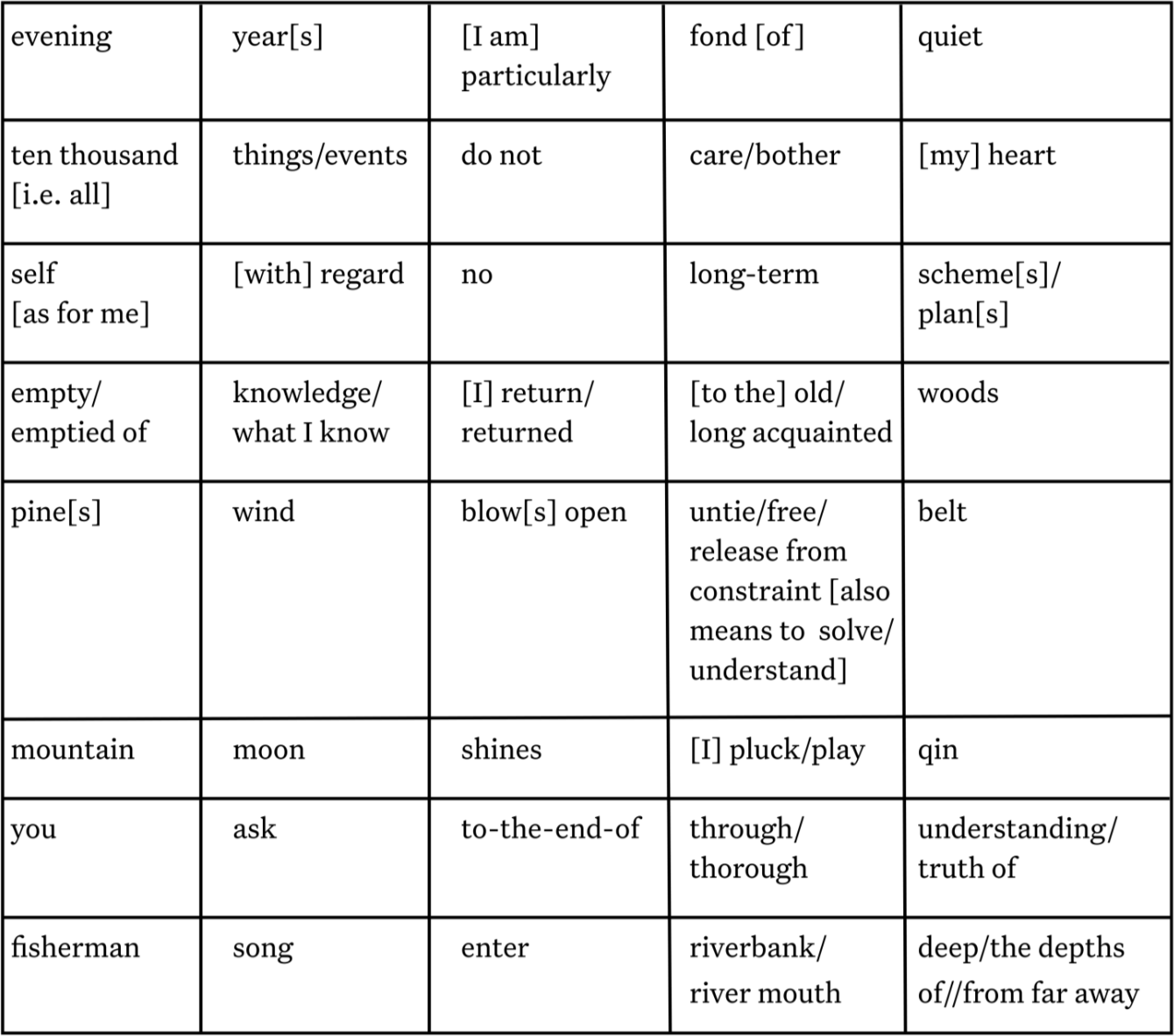On “Thanking Master Zhang with a Poem”
Born into an aristocratic family, Wang Wei (ca. 701-761) enjoyed early success at the Tang imperial court. He was recognized for his musical, artistic, and poetic talents even as a child. Though he seemed to have risen steadily in his political career, it was not without its ups and downs, and he spoke often of reclusion and retirement. Sometime after his wife’s death in 731, he started building the now famous retreat at Lantian, called Wangchuan, where he and his friend Pei Di often spent time together practicing Buddhism and answering each other’s poems. Wang Wei is best known for his ability to meld into the nature he so loved, both in his poetry and his paintings. When he wrote this poem in 741, he was only forty, hardly in his “evening years,” but this was one of those times when he was able to temporarily withdraw from the contentious and constraining life of politics.
Chinese poets often wrote “in answer to” a friend’s poem. Here, we do not have Master Zhang’s initial poem, which was most likely also written in the five-character eight-line lüshi, often translated as “regulated verse” because of the strict tonal, rhyming, and parallel demands of the form. Also, lüshis are made up of four couplets. Pronouns are rarely used, and plurals and singulars are contextual in classical Chinese.
For me, poetry is first and foremost an oral experience, and I regard translation as a performing art. Plus, each poem makes its own special demands. To best show my choices as translator of this poem, let me give you a crib. Each cell represents one character:
Read the Chinese-language original, 《酬张少府,》 and the English-language translation, “Thanking Master Zhang with a Poem,” that this translator’s note is about.
Susan Wan Dolling is a Chinese American poet, novelist, translator, independent scholar, essayist, and artist. She is the author of My China in Tang Poetry: Stories and Translations (Earnshaw Books, 2024).
Her short stories and translations have been published in Poetry, The Write Launch, the Columbia Anthology of Modern Chinese Literature (Columbia University Press, 2007), Family Catastrophes (University...



